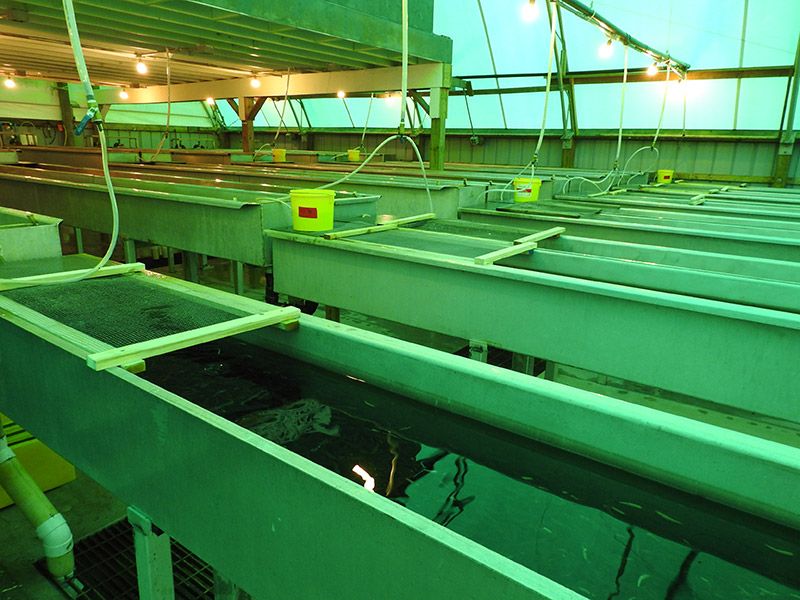Section 2 | Fish Health Management
Industry
Page 14 /
Antimicrobial Therapy
It is the end of the road for antibiotics unless we act urgently
Tom Frieden

Despite our best efforts in biosecurity and disease prevention, illness can still occur on our farms.
The decision to treat a group of fish with antimicrobials should be made in concert with a qualified veterinarian, considering a variety of factors:
Diagnosis
- Antimicrobial medications are only effective against bacteria. You need to ensure you’re treating a bacterial infection. This involves collecting the right samples and submitting them to the diagnostic lab before antimicrobial therapy is initiated
Predicted efficacy of the drug
- There are only 2 antimicrobial compounds licensed to treat bacterial infections in fish in Canada — they are florfenicol and oxytetracycline
- It’s good to know the susceptibility of the bacteria you’re trying to treat — will these medications even work if you use them? Veterinary clinical experience and diagnostic testing will help answer this question
Environmental risk
- 30-90% of antimicrobials administered get excreted in urine and manure, and therefore end up in the surrounding environment1. These drugs:
- Affect phytoplankton and zooplankton diversity; affecting the food chain throughout the ecosystem in open farms
- Lead to the development of resistance genes in environmental bacteria
- Could expose wild fish to antimicrobial medications
Human health risk
- There is potential for the development of antimicrobial resistance, where bacteria gain the ability to grow in the presence of the antimicrobial medications that would normally kill them. This resistance can make antimicrobial therapy less effective. It also could transfer to bacteria in the environment and/or workers handling farmed fish
Animal welfare
- Is the welfare of the group fish negatively affected if you didn’t treat them with antimicrobials? This is a very important consideration
Economics
- Considering all aspects of the situation, does it make economic sense to treat the group of fish? E.g. the cost of the treatment versus the likely outcome

Source: ACER Consulting Ltd.
As you can see, there is a lot to think about before you treat a group of fish with antimicrobial medications on your farm. Including your veterinarian in this decision is a must — they have the experience and knowledge to diagnose the disease and help you weigh the pros and cons of therapy.
For more information about fish health in Ontario, you can visit the Ontario Animal Health Network website. They are Ontario’s source for disease surveillance information. They’ve got excellent information on fish diseases of importance in Ontario. They’ve also conducted a research project into antimicrobial resistance among bacteria that cause disease in Ontario aquaculture (OAHN Antibiotic Resistance Project).
References
- Lulijwa R, Rupia EJ, Alfaro AC. Antibiotic use in aquaculture, policies and regulation, health and environmental risks: a review of the top 15 major producers. Rev. Aquac. 2019;2000(FAO 2014):1–24.